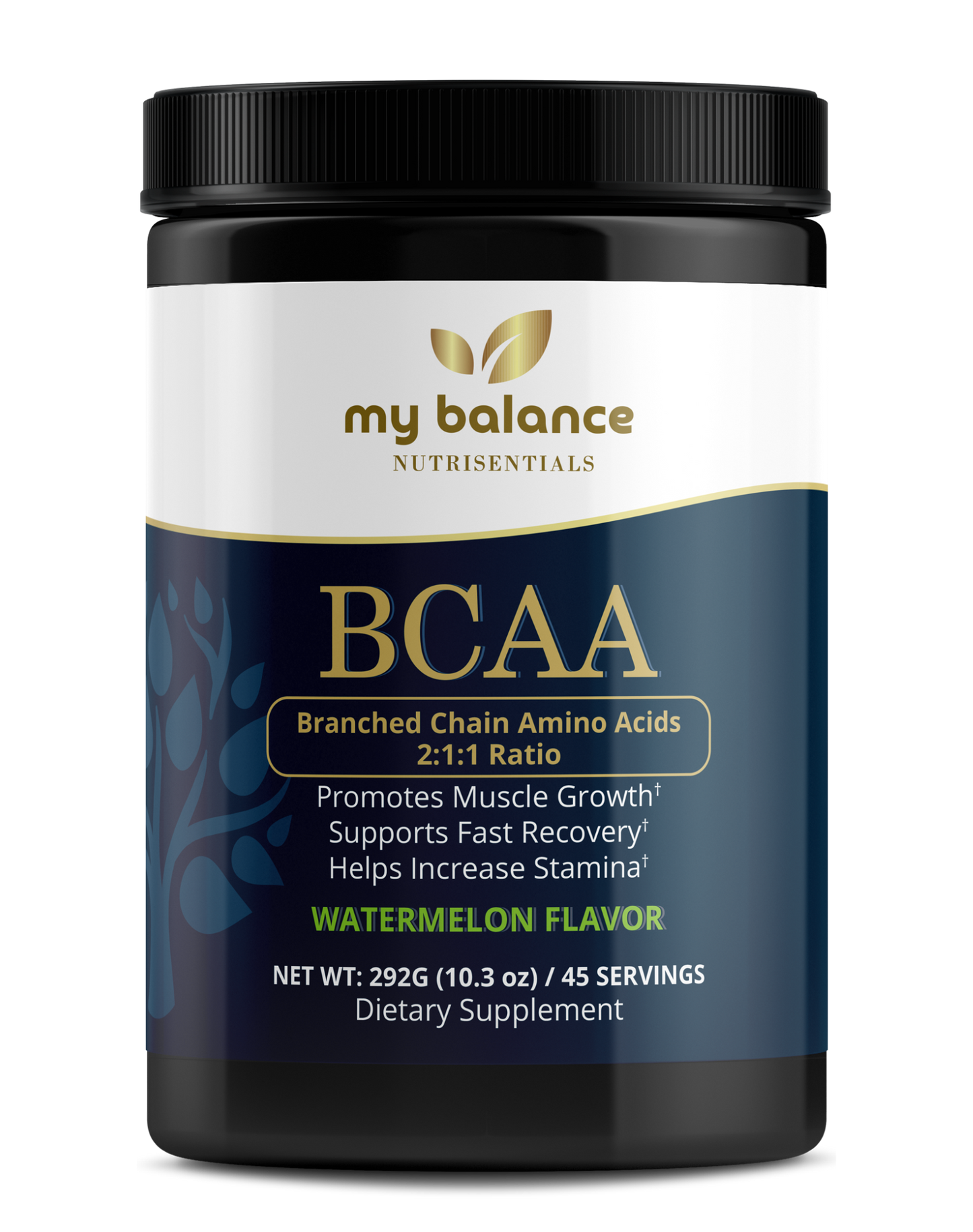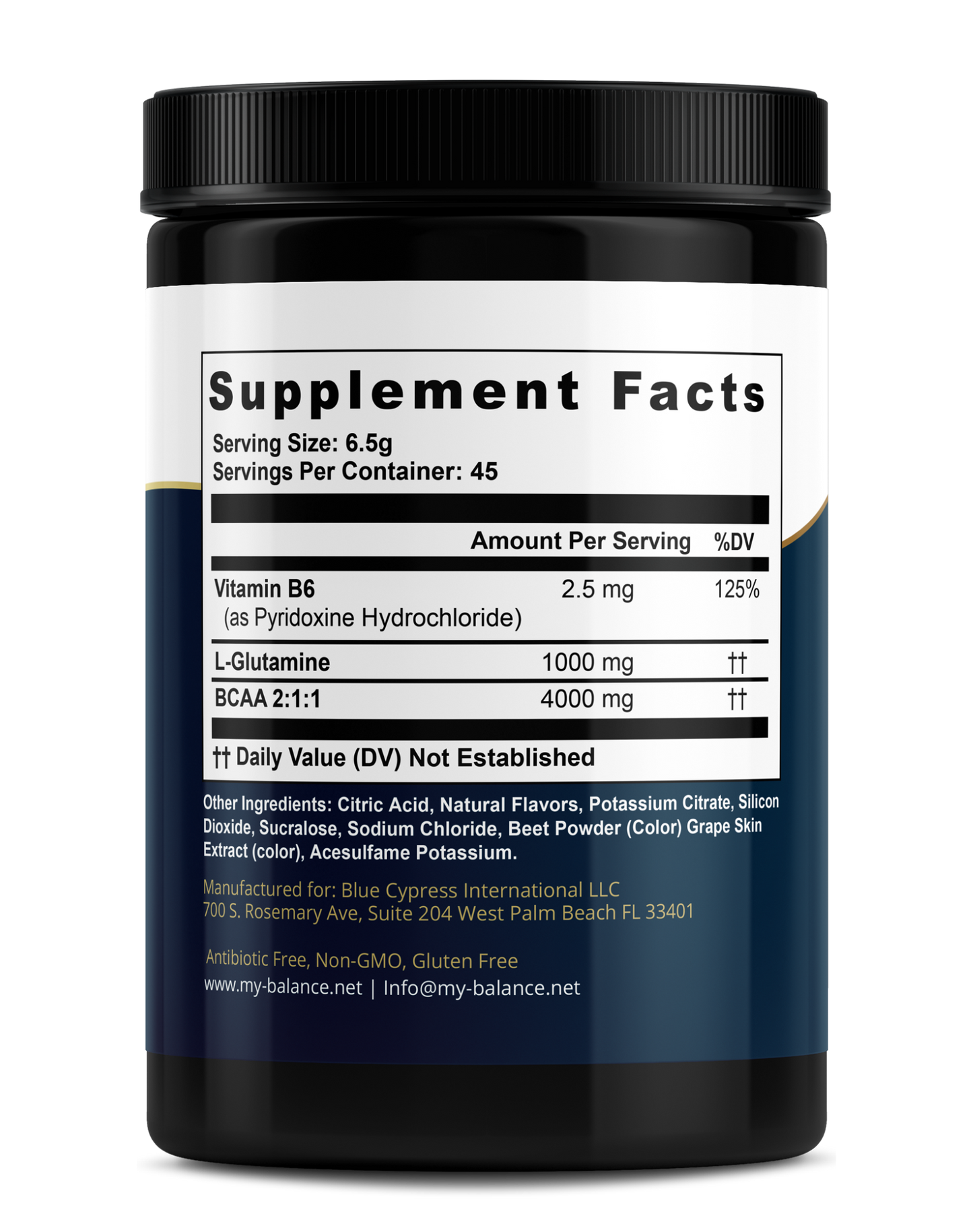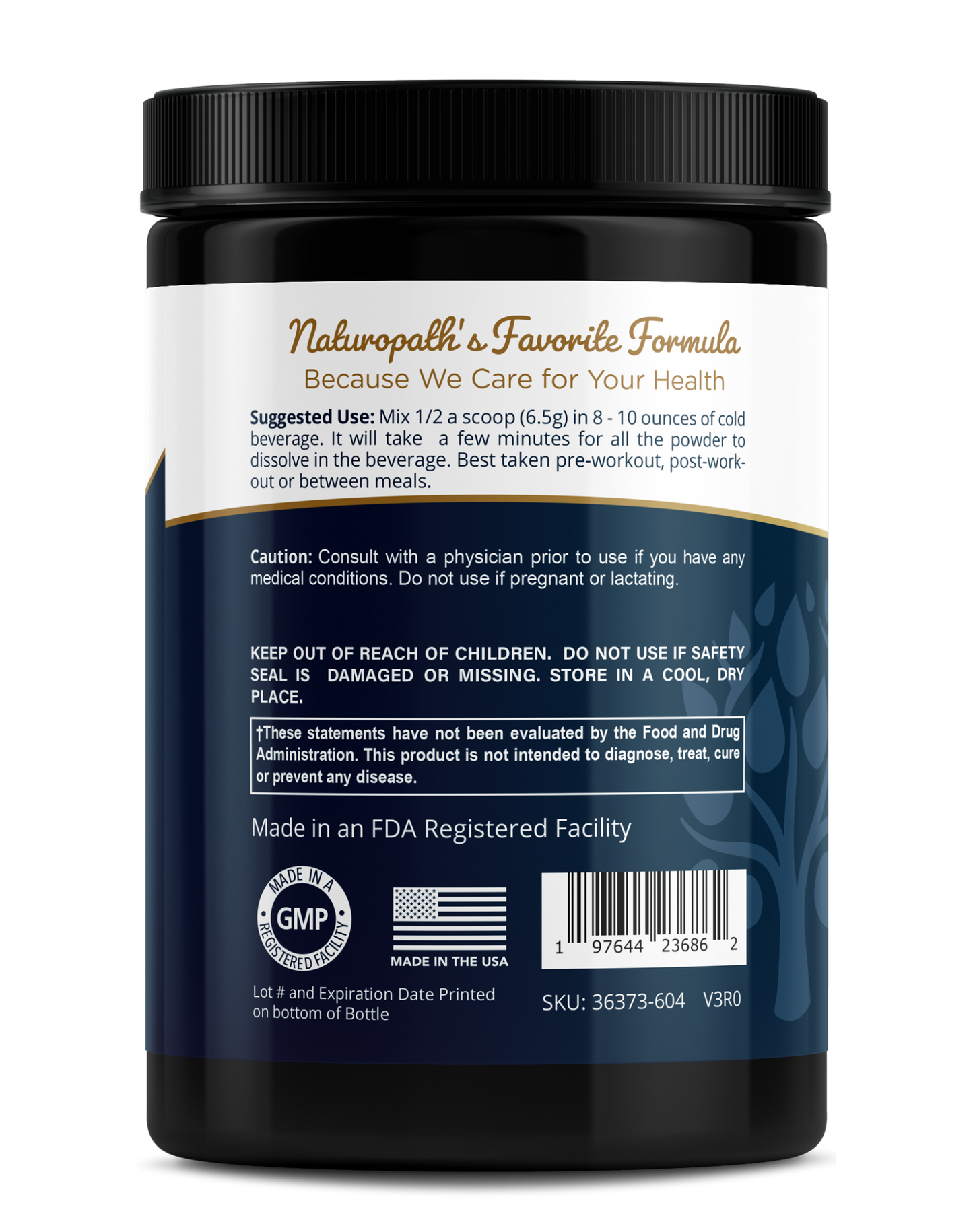¿Tienes una cuenta?
Inicia sesión para finalizar tus compras con mayor rapidez.




Inside Every Scoop
The Anatomy of a Complete Recovery Matrix

We use the clinically validated 2:1:1 ratio of Leucine, Isoleucine, and Valine. This specific blend is designed to stimulate muscle protein synthesis and prevent muscle breakdown during intense training.
Unlike standard BCAAs, our formula includes a full gram of L-Glutamine. This amino acid is critical for immune health and helps repair muscle tissue after heavy lifting, reducing delayed onset muscle soreness (DOMS).
Contains 2.5mg (125% DV) of Vitamin B6. This essential vitamin assists your body in metabolizing amino acids into cellular energy, helping you fight fatigue naturally without using caffeine.
Our powder is "instantized" to improve solubility. It mixes easily into cold water with a few shakes—no clumps, no chalky texture, just smooth, refreshing watermelon flavor.
Manufactured in an FDA-Registered, GMP-Certified facility in the USA. This formula is Gluten-Free, Non-GMO, Antibiotic-Free, and contains zero sugar.
Value matters. While most competitors offer 30 servings, My Balance delivers 45 servings per container, giving you 50% more recovery fuel for your money.
REFRESH & RECHARGE. You will notice the refreshing Watermelon taste immediately. The Vitamin B6 helps support your energy metabolism, assisting you in feeling more alert and ready to train without the jittery feeling of stimulants.
ENHANCED RECOVERY SUPPORT. With regular use of 1,000mg L-Glutamine, you may notice reduced feelings of post-workout muscle soreness. Your body begins to utilize the 2:1:1 BCAA ratio to assist in repairing tissue more efficiently between sessions.
ENDURANCE & MAINTENANCE. Consistency is key. Over time, the continuous supply of Leucine helps support muscle protein synthesis, assisting in the maintenance of lean muscle mass and supporting sustained endurance during your toughest workouts.
HOW TO PREPARE YOUR BCAA RECOVERY DRINK



Most supplements only provide basic amino acids. This BCAA targets the three critical stages of active nutrition:
Ours provide a precise 4g dosage of Leucine, Isoleucine, and Valine which assist in glucose uptake & muscle metabolism.
Intense training depletes your body's Glutamine stores. The 1,000mg of L-Glutamine help replenish these levels.
It includes Vitamin B6 which acts as a catalyst, assisting your body in converting protein and carbs into usable fuel.

Fuel your training with more than just basic aminos. Our formula combines the strength of BCAAs with the recovery power of L-Glutamine and Vitamin B6. This synergistic blend helps support protein synthesis, reduce feelings of fatigue, and promote faster post-workout repair so you can push harder and recover quicker.

Most BCAAs only offer 30 servings and just amino acids. My Balance provides45 servingsand includes aRecovery Stackof Glutamine and Vitamin B6 for better value and results.
Anyone who exercises regularly — from casual gym-goers to athletes — can benefit from the muscle and energy support BCAAs provide.
No, My Balance BCAA is completelySugar-Free. It is formulated with sucralose to deliver a refreshing Watermelon flavor without adding unnecessary calories or carbohydrates to your diet, making it suitable for low-carb and keto lifestyles.
Absolutely. Since our BCAA Recovery Matrix isstimulant-free, it can be safely stacked with your favorite pre-workout, creatine monohydrate, or protein powder to create a comprehensive performance stack without risking "stimulant overload."
Yes, our amino acids are fermented and plant-based, making them suitable for vegan and vegetarian lifestyles.
We prioritize purity and safety. This product is manufactured in the USA in an FDA-Registered and GMP-Certified facility, ensuring that every scoop meets the highest regulatory standards for quality.

Don't let hesitation hold back your progress. We are committed to delivering the highest quality nutrition to your doorstep. Order your BCAA Recovery Matrix today knowing that our team is standing by to ensure your experience is flawless from checkout to the very last scoop.